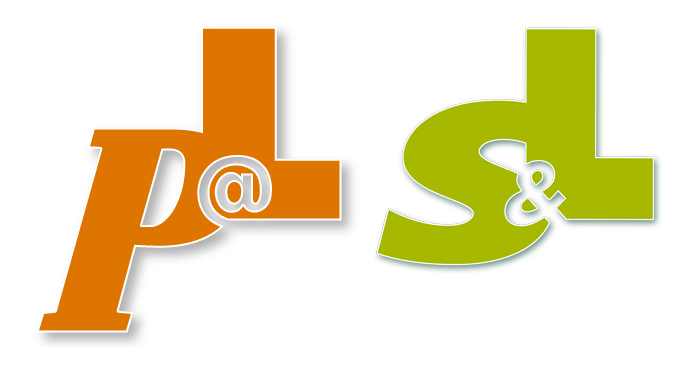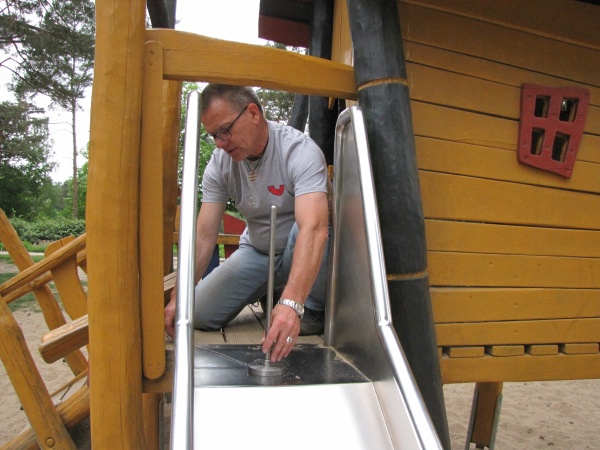How to test safety surfacing on playgrounds?
Methods of test for determination of impact attenuation in accordance with DIN EN 1177:2018 (impact attenuating playground surfacing)


YOUR FORUM FOR PLAY, SPORTS UND LEISURE AREAS

If we looked on the Internet at "www.frag-mutti.de", we would probably not get a reasonable answer.
So we have to consult the relevant technical literature in the form of standard DIN EN 1176 Part 7 "Instructions for installation, inspection, maintenance and operation", because it is here where the relevant requirements for a "playground inspector" are described.
Point 6.2.2 - inspection staff - states:
"The annual main inspection or the post-installation inspection must be carried out by an independent person, that is to say a qualified person who was not directly involved in the installation and who is not responsible for possible improvements or costs (...)."
This part of the standard also defines the term " qualified person".
According to the relevant definition (3.3), a qualified person is a "person with appropriate training who is qualified by knowledge and practical experience to perform the required task”.
Note 1 on the term: the levels of knowledge required for the different qualification levels of technical inspectors are summarised e.g. in CEN/TR 17207:2018, 5.1 and/or national specifications.
Note 2 to the term: A qualified person may be the operator, inspector, manufacturer's employee or another person. "
With regard to the document mentioned above (CEN/TR 17207), it should be noted that the Technical Report (TR) published by the European Committee for Standardisation (CEN) was not adopted by Germany, since a national specification (DIN 79161 - 'Qualification of playground inspectors') referred to as a proof of qualification already existed in Germany. It should be noted once again at this point that the application of a standard or, in a figurative sense, the possession of this qualification certificate is in principle not mandatory.
When the amendment of Part 7 was published in June 2020, the standards committee 'Playground Equipment' suspected that the current wording available could possibly lead to misinterpretation. Therefore, the standards committee inserted a passage in the supplement to DIN EN 1176, in which additional explanations are specified, and which further supplements the requirements for the inspection staff.
The additional specification says:
"Independence does not mean that the inspector must not be an employee of the manufacturer, the constructing company or the operator. What is meant is that the person carries out the inspection professionally and without instructions.
In order to summarise the somewhat complicated specifications of this standard, it could also be described as follows:
The playground inspector must be independent and qualified. If he or she is in possession of a valid certificate according to DIN 79161, this is certainly a reasonable proof of his or her expertise. However, this qualification is not mandatory to be allowed to carry out an annual main inspection or a post-installation inspection.
In a publication of the Federal Association of German Municipal Insurers (BADK), it was already mentioned in 2016 that "... the training and examination to become a qualified playground inspector continues to be a voluntary service and is therefore not mandatory. All previously acquired qualifications remain valid, namely the training and further training acquired by municipal employees to carry out the annual main inspection." (BADK Information 4/2016, p.148-149)
Unfortunately, it has shown in recent months that some companies who offer the service "playground inspection" are misrepresenting the above somewhat complicated facts in the standard. I suppose that they are trying to convince the playground operators in Germany with a rather aggressive customer acquisition that there is a conflict of liability if the operators carry out the annual main inspections or the post-installation inspections (final acceptance) with their own staff. These companies usually quote the passage in the standard under 6.2.2 'Inspection staff' (see above). But only this passage!
However, especially as a "qualified playground inspector", one should be able and willing to consider the standard as a whole and thus also be willing to consider the specifications of the supplement.
In this respect, my dear operators of playgrounds in Germany, I would advise you to simply ignore this kind of customer acquisition or, even better, to copy this technical article and send it back to the relevant companies, including the relevant accompanying letter.
Let’s be honest: Do we really assume that the municipalities and other operators of playgrounds did not carry out proper inspections of their playgrounds in the past 10-20 years?
Certainly, there is still a need for improvement in one or the other playground operator with regard to the control and maintenance of playgrounds or the qualification of staff.
However, after 20 years of working in this field, I believe I can say that I have met many municipalities and their staff in German-speaking countries who carry out the inspection and maintenance of their playgrounds in a professional manner.